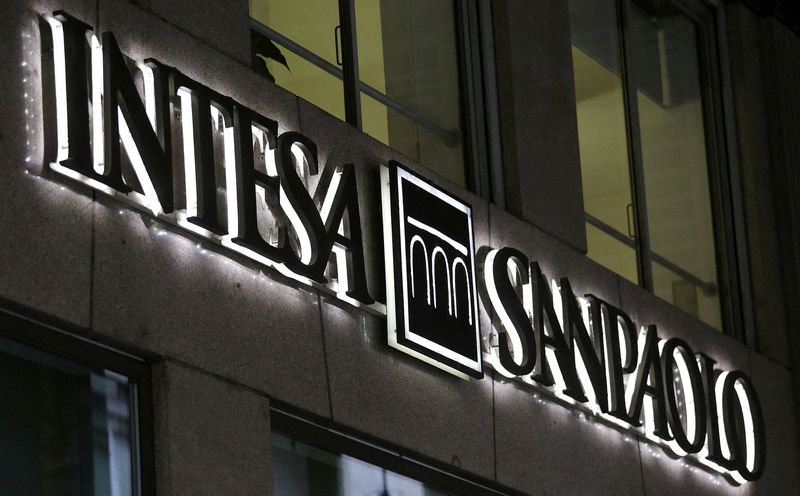MILAN (Reuters) - Italy's biggest bank, Intesa Sanpaolo (BIT:ISP), on Wednesday said it would increase non-distributable reserves by 2.07 billion euros ($2.19 billion) instead of paying a one-off windfall tax, making use of an opt-out clause in the law.
A similar decision was announced on Tuesday by rival UniCredit (LON:0RLS), which is boosting reserves by 1.1 billion euros.
Spooking investors, Italy in August slapped a one-off tax on profits that banks are reaping from higher interest rates, only to backtrack in September and give lenders the option to set aside cash as reserves instead of paying the levy.
Reserves must increase by 2.5 times the amount that would be paid as tax, which in Intesa (LON:0HBC)'s case would have been 828 million euros.
Reuters reported earlier this month that Italy risked collecting next to zero from the tax as banks would struggle to justify to shareholders dishing out the cash, when they could strengthen their capital reserves instead.
In particular, sources told Reuters that Intesa was leaning towards boosting its capital buffers to protect its shareholders.
When the tax was still only a possibility, Intesa CEO Carlo Messina said the bank was ready to pay it, but proceeds should be used to address growing inequalities in the country.

In announcing it was increasing reserves, Intesa said it had decided to spend around 1.5 billion euros over the 2023-2027 period to help people in need.
These costs, which do not affect profit goals set by the bank for 2023-2025, include 1 billion euros in funding for the projects, with the rest covering the cost of 1,000 people Intesa is allocating to run them.($1 = 0.9463 euros)